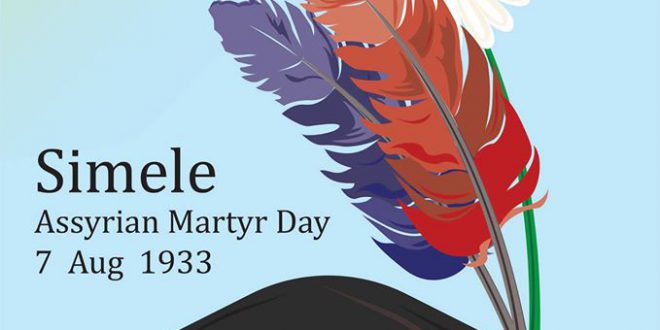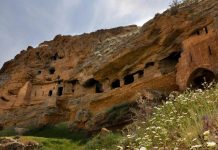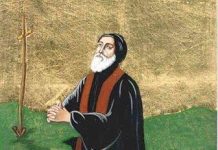In Memory of the Assyrian Martyrs: A Token of Loyalty to the Struggling, Faithful, and Deeply Rooted Assyrian People
Elias Bejjani/07 August/2025
إلياس بجاني: في ذكري الشهداء الأشوريين عربون وفاء للشعب الأشوري المناضل والمؤمن والمتجذر في التاريخ والحضارة
The Commemoration of Assyrian Martyrs
On August 7th of every year, the Assyrian people commemorate the Assyrian Martyrs Day, a solemn occasion that honors the memory of tens of thousands of innocent Assyrians who were massacred throughout history, especially during the early 20th century. These massacres include the Simele Massacre of 1933 in Iraq, during which the Iraqi army, under the command of Bakr Sidqi and with British silence, brutally killed over 3,000 Assyrian civilians in the town of Simele and its surrounding villages. This event marked one of the earliest genocides in the modern Middle East.
In addition to Simele, Assyrians were subjected to horrific atrocities during World War I, particularly between 1915 and 1918, in a genocide carried out by the Ottoman Empire and its Kurdish allies. Known in Assyrian as “Sayfo” (meaning “the sword”), this genocide led to the murder of over 250,000 Assyrians, alongside Armenian and Greek victims. Entire villages were wiped out, churches and monasteries destroyed, and cultural heritage lost. These massacres were not random acts of violence, but rather part of a systematic plan to eradicate the indigenous Christian presence in the region. The victims—men, women, children, and elderly—were killed solely for their faith, ethnicity, and their refusal to convert or abandon their national identity.
The memory of these martyrs lives on in the hearts of Assyrians across the world, and the 7th of August remains a day of mourning, prayer, and renewed commitment to preserve the Assyrian identity and defend human rights and religious freedom.
Who Are The Assyrians
The Assyrians are among the oldest Semitic peoples who settled in Mesopotamia, playing a pivotal role in shaping ancient human civilization. Their influence stretched from Nineveh and Assur in the north to Babylon and the Euphrates in the south, forming the greatest empire in the ancient Middle East during the first millennium BCE.
Yet, after the fall of their kingdom in the 7th century BCE, this ancient people did not vanish. Their cultural, religious, and linguistic presence continued, even though their political state was lost. The Assyrians remained torchbearers of civilization and of the Syriac language (derived from Aramaic), playing a central role in spreading culture and knowledge, especially after embracing Christianity in its early days.
Today: Where Do the Assyrians Live?
Though Assyria is no longer a political entity, the Assyrian people remain very much alive, residing in several countries:
Iraq: Especially in the Nineveh Plain, Duhok, and Erbil.
Syria: In the Khabour region and al-Hasakah.
Turkey: In Tur Abdin and Diyarbakir, despite declining numbers.
Iran: Particularly in the Urmia region.
Lebanon: Mainly in Beirut, the Beqaa Valley, and Zahle.
Diaspora:
United States: Detroit, Chicago, California.
Australia: Sydney, Melbourne.
Europe: Sweden, Germany, Canada, and others.
Prominent Assyrian Figures Throughout History
Despite the historical injustices they’ve endured, the Assyrians have produced many influential figures in the fields of war, science, politics, and religion:
In Ancient History:
Ashurbanipal: The last of the great kings, known for his massive library in Nineveh, which preserved thousands of Sumerian and Babylonian texts.
Tiglath-Pileser III: A brilliant military leader who established a strong centralized state and expanded the empire.
Sargon II: Built the city of Dur-Sharrukin and led successful campaigns against uprisings.
In Modern History:
Mar Shimun Benyamin: An Assyrian patriarch who led a heroic resistance against the Ottomans during World War I.
General Agha Petros: A courageous Assyrian military leader who fought against the Ottoman army to defend his people.
George Malek: Political activist and academic, a key advocate for minority rights in Iraq.
In Science and Culture
Naum Faiq: A visionary Assyrian writer and thinker, a pioneer of modern Assyrian cultural renaissance in the diaspora.
Ibrahim Malek: Philosopher and academic, contributed to the development of Assyrian studies and the Syriac language.
Mar Paulus II Cheikho: One of the leading theologians of the Chaldean Church (of Assyrian origin).
The Role of Assyrians in Defending Lebanon
Although their number in Lebanon is relatively small, Assyrians have had a deep national and spiritual role—especially after the 1933 Simele massacre in Iraq, which forced many to flee to Lebanon and Syria.
During the Lebanese Civil War Many Assyrians joined the Christian Lebanese resistance, defending Christian presence and the Lebanese state against the Palestinian occupation first, and later the Syrian and Iranian regimes. They formed local defense units in areas like Sad al-Bouchrieh, Zahle, and the Beqaa Valley, and many integrated into the Lebanese Forces. Assyrians gave martyrs for the cause of a free, pluralistic Lebanon.
In National and Political Life
The Assyrians in Lebanon have preserved their Eastern Christian identity, resisting political sectarianism and advocating for their national and religious presence.
They supported calls for Lebanon’s neutrality and opposed the monopolization of arms by any faction—especially Hezbollah. They have also played a role in interfaith and intercultural dialogue, opening their churches and centers to serve all, Christians and Muslims alike.
The Assyrian Message: A Legacy of Witness and Resilience
The Assyrians are a people of continuity and endurance. From Babylon and Nineveh to Beirut and Zahle, from Khabour to Sydney and Detroit, they carry their language, their faith, and their heritage like an unbroken banner. In defending Lebanon, they stand for values of freedom, diversity, and dignity—believing that this homeland, even when small, remains a haven for every free person and a refuge for all who resist oppression.
Prayer for the Assyrian Martyrs
O Lord of life and truth, We lift up to You the martyrs of the Assyrian nation, Who shed their blood for their faith in You, And clung to the Cross despite sword and fire. Bless their memory in our hearts,
And let their witness shine as a light in times of persecution. Grant them eternal rest in Your Paradise,
Protect their people from all evil, And let their blood be the seed of resurrection and renewal.
Amen.






















